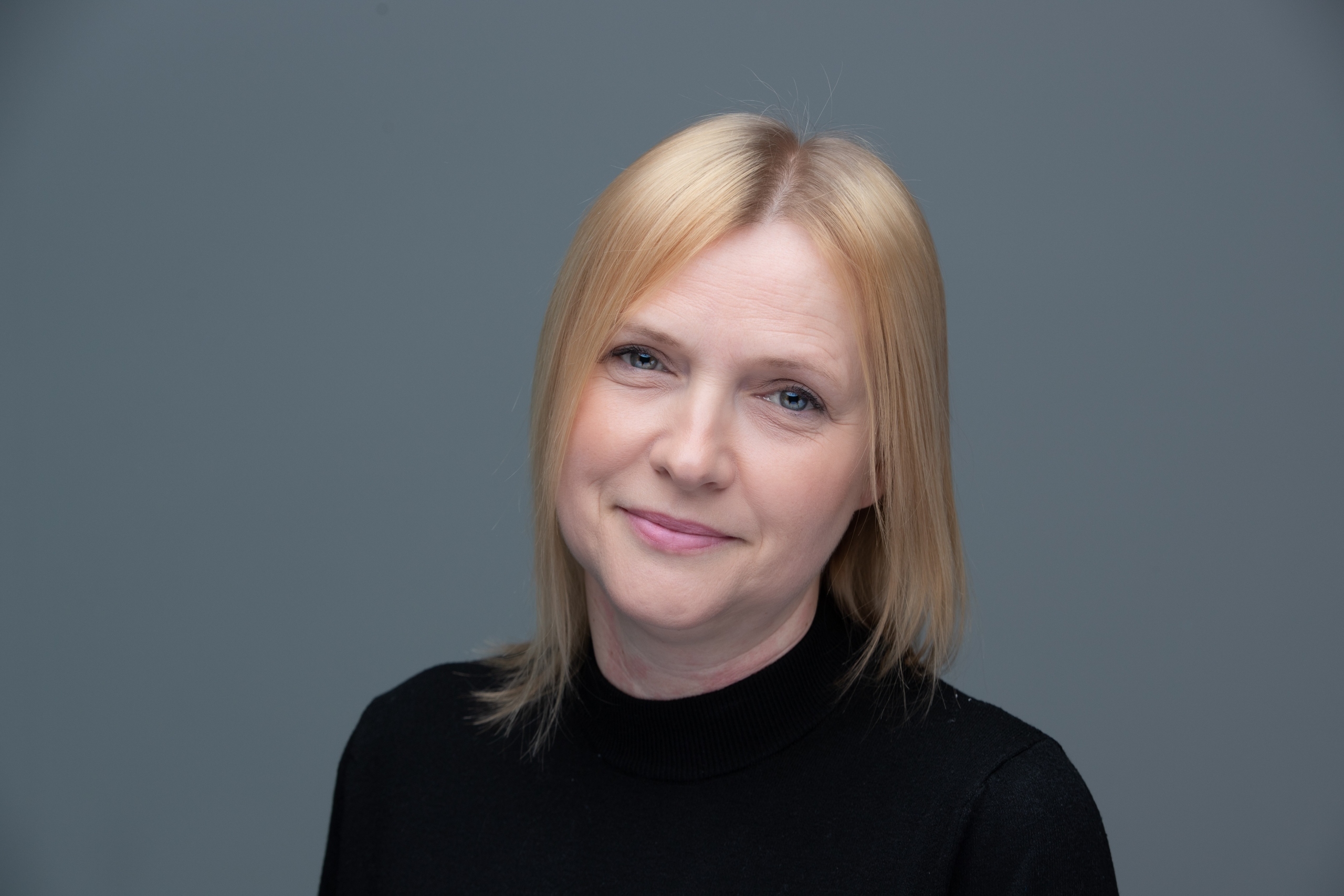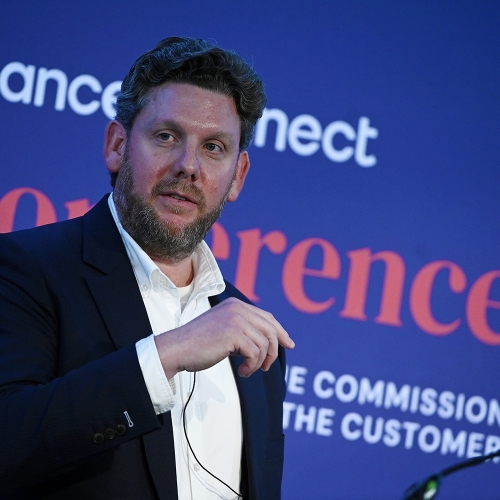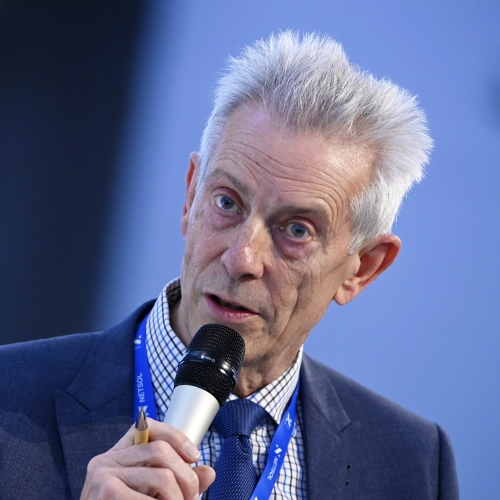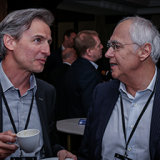
Over 100 of Europe’s most senior industry leaders joined Asset Finance Connect (AFC) at the hugely successful inaugural Leaders’ Summit Europe, held in Brussels on 16th April, for a day of networking, panel discussions and roundtable sessions centred around the key topics affecting the equipment and auto finance markets in Europe today.
With Alfa as headline sponsor, the sell-out Summit saw every single delegate pass collected by Europe’s senior industry players who were invited to attend.
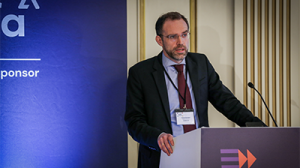
The event opened with Richard Knubben, Director General at Leaseurope providing a background on the regulatory landscape in the European Commission and how the commercial reality is clashing with the EU’s sustainability dreams.
Knubben described how the “green deal house is tumbling down” with differing regulations across different European markets and an incredible political shift to the right due to the cost-of-living crisis with costs being driven up by green measures. Knubben sees this trend continuing throughout Europe and will continue into the parliamentary elections in June.
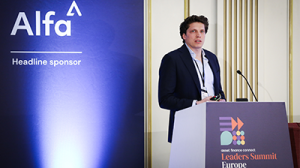
Benedikt Middendorf, Director of Automotive Mobility at Deloitte briefed the event delegates on how they must identify and implement sustainable and commercial business models within an uncertain regulatory framework that are imperative for the emerging environment-focused landscape, focusing on the impact of the Battery Regulation.
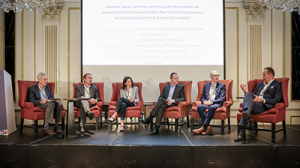
The event’s opening leaders’ panel including Mike Janse, COO and ad interim CEO, DLL; Mathilde Saint Pol, managing director, TMF France, Econocom; Richard O’Donohue, senior director, ww strategic partnerships, DELL Technologies; John Saffrett, Group Deputy CEO, Ayvens; and Andrew Flegg, CTO at Alfa, joined AFC’s head of content, David Betteley, to discuss the commercial opportunities from sustainability, and whether tech will help to drive up margins and turn that dream into a reality.
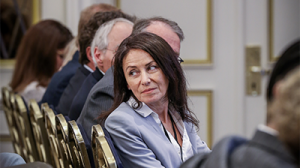
With green regulation becoming more and more forceful across Europe, the panel agreed that “green is everywhere” and ESG is a requirement now. However, unaligned and changing regulation, a high interest rate environment, rising cost of assets and increasing total cost of ownership is all contributing to an uncertain market for the auto and equipment finance industry. Technology and the flexibility it can bring has a key role to play during these uncertain times to level the playing field.
DELL Technologies’ O’Donohue noted that, as we move beyond which model is best to cater for a sustainable environment, the need for collaboration and strategic partnerships is a key requirement in business as the world becomes more and more complicated.

In the auto finance stream, Deloitte’s Benedikt Middendorf joined Euan McTurk, Consultant Battery Electrochemist at Plug Life Consulting to discuss the relationship between batteries and residual values; and Brit Schönenberger spoke to John Saffrett on the vexed question of who pays for the transition to green assets.
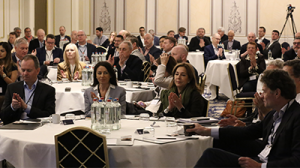
The impact of battery regulation and environmental reporting on commercial vehicle OEMs and finance providers was covered during the equipment stream with panellists Francois Millot, Head of Retail Finance, EMEA at CNHI Capital; Fernando Martin, Head of Finance Partnerships & Special Projects at Siemens Healthineers; Gerrit-Jan Bas, Managing Directorat PACCAR Financial Europe (DAF Trucks) and Ian Robertson, executive director at Invigors.
Robertson, along with the panel, went on to discuss the commercial opportunities which are offered by Greenhouse Gas Reporting and Taxonomy.
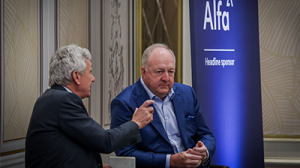
Bill Stephenson, Global CEO of PEAC Solutions joined AFC’s head of equipment finance, John Rees to share his view that big banks are reconsidering their investment in asset finance divisions: “Asset finance businesses operating within a bank need to recognise that in many cases, they are the last mouths to feed behind core banking operations and other more strategic investments.”
Stephenson also proposed that asset finance sales teams, who easily made their targets during the past halcyon days, will need to re-learn selling higher margin business or face the consequences. “If a business cannot successfully execute this pivot and achieve higher margins, they will be re-evaluated by their bank owners,” commented Stephenson.

Stephenson noted that “the cancer that exists in our industry is complacency” with the same players existing in the market for the past 20 years with poor legacy systems, corrupt data and rising operating costs for tech and compliance. The Global CEO of PEAC Solutions, an independent private-equity funded business, saw the opportunities that such a business could have in the current market conditions, particularly given the strict Basel capital adequacy rules being placed on bank-held firms.
Stephenson sees firms such as PEAC as disruptors in the industry with amazing technological systems and data, and sales teams that know the sector and the asset inside out.
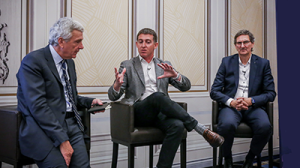
In one of the final sessions of the day, Jochen Jehmlich, former CEO of SGEF and Jason Hurwitz, Sales Director Europe at NETSOL Technologies joined John Rees to discuss what is needed to make technology an enabler of transformation so the model can shift beyond margin income to other income.
Jehmlich commented that while “getting margins upwards is the holy grail for banks,” they need to provide value while building scale.
Hurwitz noted that technology plays an increasingly important role for banks manging margins. Tech strategies and changes have always been challenging for banks, according to Hurwitz, but a clear strategy is needed before deciding on a new technological system.
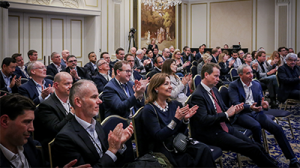
Afternoon roundtables saw leaders come together in small groups to consider the big questions of the day – the role of asset finance companies in sustainability and whether they should be leaders or simply enablers of the transition to sustainable assets; Chinese BEVs entering the European markets and its implication for the auto industry; whether private equity, manufacturer captives or banks are best placed to lead the market in an industry dominated by regulation and increasingly asset-specific solutions; and the opportunities for circular economy in the industry, can green be profitable, and the new concept of scope 4 emissions.
The evening ended with further networking opportunities for the industry leaders at a drinks reception, sponsored by headline sponsor Alfa, and a dinner sponsored by Alfa, Acquis, NETSOL Technologies and Odessa.

